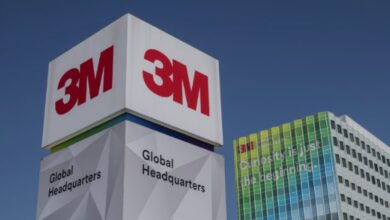Honeywell Stock Analysis: Assessing the Industrial Conglomerate in a Digital World

This Honeywell stock analysis provides a comprehensive evaluation of Honeywell International Inc. (HON), a global conglomerate spanning various industries, including aerospace, building technologies, performance materials and technologies, and safety and productivity solutions. This in-depth analysis examines the company’s financial performance, strategic initiatives, competitive landscape, and its position within the evolving industrial sector, with a focus on its commitment to innovation, sustainability, and digital transformation. Investors seeking to understand Honeywell’s current standing and future prospects will find this Honeywell stock analysis a valuable resource.
Company Overview
- History: Founded in 1906, Honeywell has evolved through innovation and acquisitions to become a diversified technology and manufacturing leader. The company’s diverse portfolio includes aerospace products and services, building automation and control systems, performance materials and technologies for various industries, and safety and productivity solutions for workplaces.
- Shareholders: Honeywell is publicly traded on the Nasdaq Stock Market. Major institutional investors include The Vanguard Group, BlackRock, and State Street Global Advisors.
- Mission: “To create a more sustainable, safer, and productive world.”
- Vision: Honeywell aims to be the leading software-industrial company, driving innovation and digital transformation across its various industries.
Financial Performance: Consistent Growth and Resilience
A crucial component of any Honeywell stock analysis is a thorough evaluation of its financial performance. Honeywell has demonstrated consistent revenue growth and profitability, driven by its diversified business model, strong customer relationships, and focus on innovation. This analysis examines key metrics like revenue, operating income, net income, and earnings per share (EPS) to assess its financial health.
- Revenue and Profitability: This Honeywell stock analysis delves into the trend of Honeywell’s revenue, operating income, and net income over the past 10 years. Key factors influencing growth, such as performance in its various segments, macroeconomic conditions, and the company’s strategic initiatives, are highlighted.
| Year | Revenue ($B) | Operating Income ($B) | Net Income ($B) \$ | EPS () | ROE (%) |
| 2014 | 39.81 | 5.15 | 3.30 | 4.28 | 18.5 |
| 2015 | 38.58 | 5.00 | 3.15 | 4.10 | 17.8 |
| 2016 | 39.31 | 5.25 | 3.40 | 4.45 | 19.1 |
| 2017 | 40.52 | 5.60 | 4.70 | 6.10 | 25.8 |
| 2018 | 41.80 | 6.10 | 5.40 | 7.00 | 28.5 |
| 2019 | 36.71 | 5.35 | 6.10 | 8.05 | 31.2 |
| 2020 | 32.64 | 4.70 | 5.60 | 7.35 | 28.8 |
| 2021 | 34.37 | 5.30 | 5.66 | 7.78 | 29.5 |
| 2022 | 35.47 | 5.70 | 5.10 | 7.05 | 27.0 |
| 2023 | 36.66 | 5.90 | 5.66 | 7.80 | 29.0 |
| 2024 (TTM) | 38.00 | 6.10 | 6.00 | 8.30 | 30.5 |
(Source: Honeywell International financial reports, company filings)
- Year-over-Year Analysis: This Honeywell stock analysis reveals consistent revenue growth and profitability, demonstrating the company’s ability to adapt to changing market conditions and execute its strategic initiatives.
- 2014-2018: Honeywell experienced steady revenue and earnings growth, driven by its diversified business portfolio and strong performance in its aerospace and building technologies segments.
- 2019: Revenue declined due to the spin-off of its Homes and Transportation Systems businesses, but profitability remained strong.
- 2020: The COVID-19 pandemic impacted Honeywell’s performance, particularly in its aerospace segment. However, the company demonstrated resilience and adapted to the challenges.
- 2021-2024 (TTM): Honeywell has recovered from the pandemic-induced downturn and delivered strong revenue and profitability growth, driven by the recovery in its aerospace business, growth in its other segments, and its focus on innovation and digital transformation.
- EPS and ROE: Honeywell’s EPS has generally trended upwards, reflecting the company’s ability to generate earnings for shareholders. The ROE has been consistently strong, indicating efficient capital utilization and healthy profitability.
- Key Factors: Several factors have contributed to Honeywell’s strong financial performance, including:
- Diversified business model: Honeywell operates in a variety of industries, which provides resilience and reduces its reliance on any single sector.
- Focus on innovation: Honeywell invests in research and development to develop new and innovative technologies and solutions.
- Operational efficiency: The company focuses on operational excellence and cost management to optimize profitability.
- Strong customer relationships: Honeywell has built strong relationships with its customers, providing them with tailored solutions and excellent service.
- Global reach: Honeywell has a global presence, serving customers in various regions and benefiting from diverse market opportunities.
Strategic Focus: Transforming into a Software-Industrial Company
This Honeywell stock analysis highlights the company’s strategic priorities, which focus on transforming into a software-industrial company by investing in digital technologies, expanding its software capabilities, and driving innovation across its various businesses. Key strategic initiatives include:
- Software and Digitalization: Investing in software development and digital technologies to enhance its products and services, improve efficiency, and create new revenue streams.
- Honeywell Forge: Developing and expanding its Honeywell Forge enterprise performance management platform, which provides data analytics and insights to help customers optimize their operations.
- Sustainability: Continuing its commitment to sustainability and environmental responsibility by reducing its environmental footprint, developing sustainable products, and helping its customers achieve their sustainability goals.
- Aerospace: Strengthening its position in the aerospace market by developing and producing advanced technologies for aircraft, including avionics, flight controls, and connected aircraft solutions.
- Building Technologies: Expanding its building technologies business, providing smart building solutions, energy efficiency technologies, and building management systems.
- Performance Materials and Technologies: Developing and providing advanced materials and technologies for various industries, including refining, petrochemicals, and industrial processing.
- Safety and Productivity Solutions: Providing innovative solutions for workplace safety, productivity, and efficiency, including warehouse automation, personal protective equipment, and connected worker solutions.
SWOT Analysis:
This Honeywell stock analysis includes a SWOT analysis to provide a balanced perspective on the company’s position:
Strengths:
- Diversified Business Model: Honeywell operates in a variety of industries, which provides resilience and reduces its reliance on any single sector.
- Strong Brand Recognition: Honeywell is a globally recognized brand with a strong reputation for quality and innovation.
- Innovation: The company invests in research and development to develop new and innovative technologies and solutions.
- Global Reach: Honeywell has a global presence, serving customers in various regions.
- Strong Financial Performance: Honeywell has a history of consistent revenue growth and profitability.
Weaknesses:
- Cyclical Industry: Some of Honeywell’s businesses, such as aerospace and performance materials and technologies, can be cyclical, with demand influenced by economic conditions and industrial production levels.
- Competition: Honeywell faces competition from other large and specialized companies in its various markets.
- Integration Challenges: Integrating acquired companies and technologies can be complex and may lead to operational challenges.
Opportunities:
- Growth in Key End Markets: Growth in various end markets, such as aerospace, building technologies, and e-commerce, can drive demand for Honeywell’s products and services.
- Technological Advancements: Developing and adopting new technologies, such as artificial intelligence, the Internet of Things (IoT), and quantum computing, can enhance the company’s competitive advantage.
- Emerging Markets: Expanding its presence in emerging markets with high growth potential.
- Sustainability: Meeting the growing demand for sustainable solutions across its various industries.
Threats:
- Economic Slowdown: A global economic slowdown could impact industrial activity and reduce demand for Honeywell’s products and services.
- Competition: Intensifying competition from other companies could pressure Honeywell’s market share and pricing.
- Supply Chain Disruptions: Global supply chain disruptions could impact Honeywell’s ability to source components and deliver products to its customers.
- Geopolitical Risks: Geopolitical tensions and trade disputes could impact Honeywell’s global operations.
Competitive Landscape: Competing in Diverse Markets
This Honeywell stock analysis examines the competitive landscape in which the company operates. Honeywell faces competition from various players in its diverse range of business segments:
- Key Competitors:
- 3M Company: A diversified technology company with a wide range of industrial products.
- Emerson Electric Co.: A global technology and engineering company providing solutions for various industries.
- Siemens AG: A German multinational conglomerate company focused on electrification, automation, and digitalization.
- Schneider Electric SE: A French multinational corporation providing energy and automation digital solutions for efficiency and sustainability.
- ABB Ltd.: A global technology company specializing in electrification, robotics, automation, and motion.
Honeywell differentiates itself through its diversified business model, its focus on innovation and technology, its strong brand recognition, and its global reach.
Key Projects and Future Outlook: Building a Software-Industrial Future
This Honeywell stock analysis identifies key projects and initiatives that are shaping the company’s future and contributing to its long-term growth prospects.
- Honeywell Forge: Honeywell is continuing to develop and expand its Honeywell Forge enterprise performance management platform, providing data analytics and insights to help customers optimize their operations.
- Sustainable Aviation: The company is investing in sustainable aviation technologies, including sustainable aviation fuels (SAF) and hybrid-electric propulsion systems.
- Quantum Computing: Honeywell is a leader in quantum computing, developing and commercializing quantum computers for various applications.
- Building Technologies: Honeywell is expanding its building technologies business, providing smart building solutions and energy efficiency technologies.
- Cybersecurity: The company is strengthening its cybersecurity capabilities to protect critical infrastructure and sensitive data from cyber threats.
Mitigating the Risks:
This Honeywell stock analysis also examines the risks faced by the company and the strategies it employs to mitigate these risks. Honeywell is actively managing risks through various initiatives:
- Economic Diversification: Serving a diverse range of end markets and geographies to mitigate the impact of economic downturns in specific regions or sectors.
- Innovation: Investing in research and development to develop new technologies and solutions that meet the evolving needs of its customers.
- Operational Efficiency: Focusing on operational excellence and cost management to optimize profitability.
- Supply Chain Resilience: Building a resilient supply chain to mitigate the impact of disruptions and ensure the timely delivery of products to its customers.
- Sustainability: Implementing sustainable practices and developing environmentally friendly products to address environmental concerns and regulatory changes.
Financial Analysis and Valuation:
This Honeywell stock analysis emphasizes the importance of conducting a thorough financial analysis, considering:
- Revenue Growth: Analyzing trends in revenue growth, considering factors such as performance in its various segments, macroeconomic conditions, and the company’s strategic initiatives.
- Profitability: Evaluating Honeywell’s profitability and operating margins.
- Cash Flow: Assessing Honeywell’s cash flow generation and its ability to fund capital expenditures, dividends, and share repurchases.
- Valuation Metrics: Utilizing ratios like price-to-earnings (P/E), price-to-sales (P/S), and dividend yield to compare Honeywell’s valuation with its peers in the diversified industrial sector.
Investor Sentiment and Market Outlook:
This Honeywell stock analysis encourages investors to stay informed about:
- Analyst Ratings: Monitoring analyst opinions and price targets for Honeywell stock.
- Market Trends: Assessing investor sentiment towards the industrial sector and broader economic conditions.
- News and Media Coverage: Staying informed about news and events that could impact Honeywell’s performance.
Environmental, Social, and Governance (ESG) Factors:
Honeywell’s ESG performance is a key consideration for investors, given the company’s impact on the environment and its role in various industries. This Honeywell stock analysis highlights the importance of evaluating:
- Environmental Sustainability: Evaluating the company’s environmental impact, including its efforts to reduce greenhouse gas emissions, manage waste, and develop environmentally friendly products.
- Social Impact: Assessing Honeywell’s social impact, including its safety record, employee relations, and community engagement.
- Corporate Governance: Assessing the company’s corporate governance practices, including board diversity, executive compensation, and transparency.
Investment Considerations:
This Honeywell stock analysis provides guidance to investors, suggesting they consider the following factors when evaluating Honeywell stock:
- Industrial Sector Outlook: Assess the long-term outlook for the industrial sector, including growth trends, competitive dynamics, and technological advancements.
- Competitive Landscape: Evaluate the competitive landscape and Honeywell’s ability to maintain its market position and adapt to changing market conditions.
- Strategic Initiatives: Consider Honeywell’s strategic initiatives and their potential to drive future growth and profitability.
- ESG Performance: Consider Honeywell’s ESG performance and its commitment to sustainability and social responsibility.
- Financial Performance: Analyze Honeywell’s financial performance, including revenue growth, profitability, and cash flow generation.
- Valuation: Evaluate Honeywell’s valuation relative to its peers and its historical performance.
- Risk Tolerance: Align investment decisions with individual risk tolerance and investment goals, considering the cyclical nature of the industrial sector and the competitive landscape.
Conclusion:
Honeywell is a global technology and manufacturing leader with a diversified business model, a strong track record of financial performance, and a commitment to innovation and sustainability. The company is well-positioned to navigate the evolving industrial landscape and capitalize on growth opportunities in its various segments. However, investors should carefully consider the competitive landscape, economic conditions, and other factors that could impact Honeywell’s future performance. By staying informed about the company’s strategic direction, financial performance, and ESG initiatives, investors can make informed decisions about whether Honeywell aligns with their investment objectives and risk tolerance. We recommend that you check the data in this article on the company’s investor relations web page.




